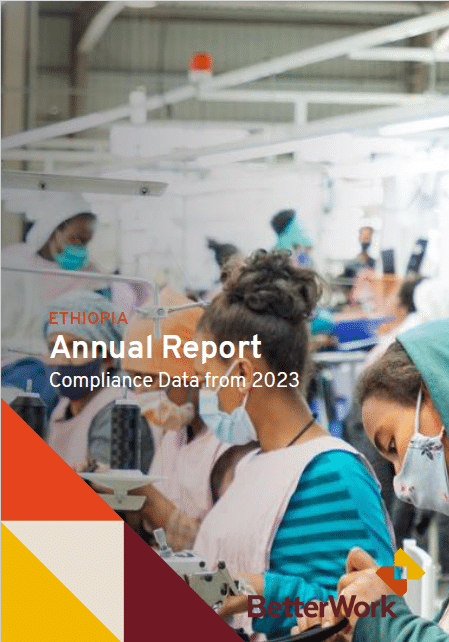The report highlights the achievements of the Better Work Ethiopia (BWE) programme despite ongoing socio-economic and political difficulties in the country.
Better Work Ethiopia, being implemented under an ILO programme called ‘Advancing Decent Work and Inclusive Industrialization in Ethiopia,’ or ‘ONEILO-SIRAYE’, has made notable strides in improving compliance with labour laws, fostering better HR practices, promoting disability inclusion, and increasing female representation in leadership roles during the reporting period.
As of 2023, the programme served 38 factories, employing more than 39,000 workers, with women making up 85 per cent of the workforce.
Key improvements include enhanced Occupational Safety and Health (OSH), expanded worker grievance mechanisms, and free legal aid services. Gender equality, freedom of association, and policy advocacy also remain central to the programme’s efforts.
However, the apparel sector in Ethiopia has faced significant headwinds in recent years. The COVID-19 pandemic and the ongoing conflict in the Tigray region have disrupted operations, leading to factory closures and job losses. Additionally, the suspension of Ethiopia’s access to the African Growth and Opportunity Act (AGOA) has further impacted the industry.
Nevertheless, the report outlines plans to scale up women’s leadership initiatives, strengthen disability inclusion, and engage with other industries such as coffee and horticulture.
As Ethiopia celebrates the 100th anniversary of its ILO membership, there is renewed hope for the future of work and the garment industry in the country.
For a more detailed analysis and data, please explore the full report.
